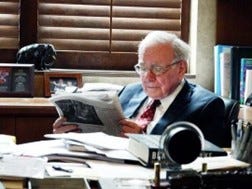A note from Aaran
3 takeaways from my time at Variant Perception
Aaran Param was an important part of VP’s research team from 2019-2023. He shared this note with us, reflecting on his experience, learnings, and insights from his time at VP.
Lessons from cycles, Covid, clients and colleagues
The title of this piece is an unashamed homage to John Normand’s last report at JP Morgan where he shared his lessons learnt from his time there.
As I bid farewell to Variant Perception, I can’t help but acknowledge the clients and colleagues I met along the way who have helped to shape my professional and personal path – you all know who you are!
Here are 3 lifelong takeaways from my time at Variant Perception.
1) Know your investment horizon (+ the tools to help you)
Someone once said that a lot of arguments in finance are simply just people with different horizons talking to each other.
Understanding your investment time horizon is critical – even more critical is having a suite of tools catered to this time horizon.
I was fortunate enough to build on Variant Perception’s suite of tactical (1-3 month), cyclical (6-12 month), structural (multi-year). Here are a few of my favorite:
Capital cycles (Structural):
Capital cycles are foundational to how the world works – capital chases high-returning businesses, which can lead to oversupply and poor future returns. Hated industries with dwindling competition tend to offer the best future returns.
Capital cycles build from the bottom and are slow-moving – so when the capital cycle turns, you know something has fundamentally changed on the supply-side.
One of the beautiful properties about capital cycles is the ability to aggregate. In my role as a multi-asset allocator, I can’t trade the single name expressions that pop out of the capital cycle analysis, but I can aggregate this to the sector and even country level to form an allocation view.
e.g. Oil and gas companies turned very capital-scarce through 2020 – and have stayed capital-scarce since, confirming the bullish multi-year setup.
Business cycles (Cyclical):
Howard Marks said that the persistence of cycles is largely due to the inability of investors to remember the past.
Knowing where you are in the business cycle goes a long way to dialing up/down portfolio risk. It helps that everyone looks at things differently… a lot of weight is placed on lagging and heavily-revised measures like GDP. Recessions are often modelled as linear processes, but all the empirical data suggests that recessions should be modelled as regime shifts; once the data tips, feedback loops can create very rapid moves in economic and market data. Liquidity is not a clean concept: VP global excess liquidity tends to be a leading contrarian indicator that spikes when sentiment is terrible.
But sometimes markets price this in! Applying judgement to where the cycle is heading and what’s priced in helps to prioritize the best trade setups.
Buy/sell signals (Tactical):
As a multi-asset allocator with little scope to react quickly to every signal, tactical tools can still be very useful for position sizing and conviction levels.
2) Be a good filter
Reading a wide range of material (not just finance…) is probably the best investment you can make for yourself. Warren Buffett quipped that everyone can read lots, but hardly anyone will.
We are exposed to an abundance of content and investment products. Being able to decide what stuff not to read/spend time on is a tremendous time save. It’s helped me learn more effectively and build up my own frameworks to look at the world.
3) Having fun in finance
It’s very easy to be a cynic in this industry, particularly with the rise of “fintwit”. I don’t really enjoy getting engaged in this because you end up feeling really bad about your mistakes.
Happily acknowledging your mistakes is so important for longevity. It’s hard to do this naturally, but it’s more like a muscle that needs to be flexed. Once I was able to do this, I had a lot more fun, and typically the best ideas were borne from a place of deep curiosity.
Being around people that also happily acknowledge your mistakes also makes a huge difference – Harvard’s multi-decade happiness study found that fostering positive relationships is the single-most important thing to make you happy. I’m grateful for the people I’ve met along the way and hope to continue investing in these relationships!
Sources: Variant Perception, Quora, Amazon






